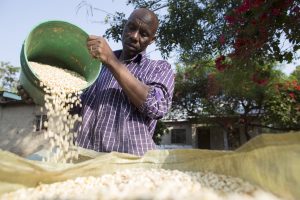Официальная обратная связь диалога для Саммита ООН по продовольственным системам 2021 года
Виды диалогов
Организатор
Язык диалога
Дата/время
Окончание
Город
Местоположение
Формат
Просьба ознакомиться с приводимыми ниже данными для получения регистрационной информации, если таковая имеется, или обратитесь к руководителю диалога, если желаете принять участие.
Куратор
Описание
Farm Africa- Kenya intends to coordinate a high level national dialogue targeting policy makers and industry influencers in a Zoom chat room. The agenda is centered on addressing food systems complexities that influence food loss pathways to pave way for implementation and unlocking the country’s potential to food security. The Farm to Fork dialogues will host stakeholders drawn from farmer cooperatives/ associations, manufacturers/processors and private industry stakeholders- Kenya Private Sector Alliance (KEPSA), national government agriculture representatives.
CONCEPT
Contrary to SDG Goal 2: Zero Hunger, food insecurity and malnourishment plagues hundreds of thousands of Kenyans every day. An estimation of one in three Kenyans (1 in 3) is food poor which translates to 14.5% of the population and one in four Kenyan children under five years (1 in 4) have stunted growth (Source). Kenya is facing increasingly complex food and nutrition security problems and producing and providing food is a power game that its smallholder farmers are losing.
Due to this complexity, the long-term sustainability of its food system and its resilience to shocks (and unexpected events) depends on a wide range of local and global drivers. For Kenya’s food systems to provide food security, the food supply needs to be stable both in availability and affordability including through price stability.
One of the primary inefficiencies of the global food system is food loss and waste. Food loss happens in various parts of the value chain. Some crops are destroyed in the field before ever making it to market. Other crops are harvested and then spoil on the way to market. Consumers contribute to food waste every time someone goes grocery shopping and throws out fruits and vegetables before eating. It is estimated that almost 30 percent of the world’s agricultural land is devoted to producing food that will never even be eaten because of these inefficiencies. Minimizing food loss can help to increase the amount of food that reaches the market.
Благодарности


